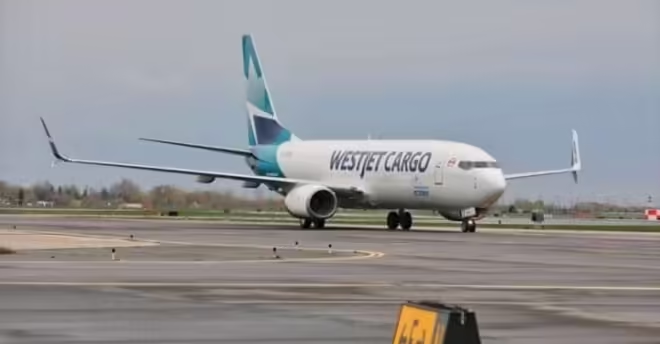
WestJet Airlines, one of Canada’s leading carriers, has unveiled a new business model focused on freighter aircraft, marking a significant expansion into the air cargo market. This strategic move is part of the airline’s broader effort to diversify its revenue streams and capitalize on the growing global demand for air freight, particularly in the wake of the COVID-19 pandemic, which highlighted the essential role of air cargo in global supply chains.
The decision to launch a dedicated freighter service comes at a time when the air cargo industry is experiencing sustained growth due to increased e-commerce, supply chain disruptions, and a surge in global trade. WestJet, primarily known for its passenger services, is now adapting to the evolving market dynamics by converting part of its fleet to focus on cargo. The airline is introducing Boeing 737-800 freighters into its operations, aircraft well-suited for short- and medium-haul cargo routes, a space where WestJet sees considerable potential for growth.
The shift towards a freighter business model represents a major strategic pivot for WestJet, which has historically concentrated on passenger services. However, this expansion into the air freight market aligns with industry trends, as airlines around the world have been increasingly investing in freighter aircraft to meet growing demand for cargo services. The pandemic severely impacted passenger travel, but it also revealed the critical importance of air cargo in maintaining the flow of essential goods, such as medical supplies and consumer products.
WestJet’s decision to enter the freighter market also taps into Canada’s growing demand for air cargo services. With the rise of e-commerce and the need for fast, reliable delivery services, there is an increasing need for more dedicated cargo capacity. WestJet aims to fill this gap by providing competitive cargo services within Canada, as well as between Canada and international markets. The introduction of dedicated freighter aircraft will enable the airline to offer more cargo capacity, increase its operational flexibility, and cater to a broader range of clients in industries like retail, manufacturing, and agriculture.
The airline plans to operate these freighter aircraft on key domestic and international routes, with a focus on major cargo hubs in Canada, such as Toronto, Vancouver, and Calgary, where the airline is headquartered. WestJet’s entry into the cargo market is expected to create new partnerships with logistics companies, freight forwarders, and e-commerce businesses, further enhancing its position in the industry.
In addition to generating new revenue streams, WestJet’s move into the freighter business also supports its broader sustainability goals. By converting existing aircraft to freighters, the airline is extending the lifespan of its planes, reducing waste, and optimizing the use of its fleet. Moreover, the efficient design of the Boeing 737-800 freighter aircraft helps minimize fuel consumption, contributing to the airline’s commitment to reducing its environmental impact.
In conclusion, WestJet’s adoption of a new business model for freighter aircraft signals a significant shift in its operations, positioning the airline to tap into the growing demand for air cargo services. This move not only helps the airline diversify its revenue but also aligns with broader industry trends and market demands, ensuring that WestJet remains competitive in a rapidly changing global aviation landscape.